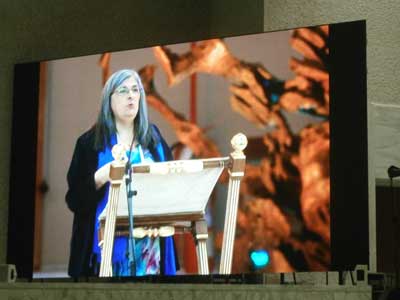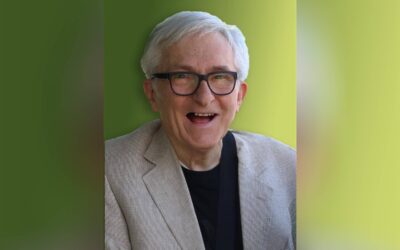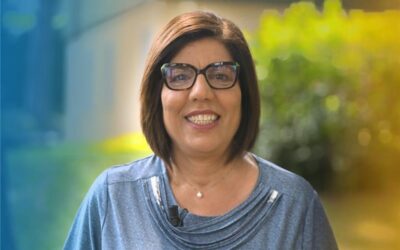 The profession of educators is a poorly paid one. This speaks volumes about the regard given to education by society and by governments. From November 18th to 21st, 2500 people gathered in Rome for a convention organised by the Congregation for Catholic Education, to commemorate the 50th anniversary of the Vatican Council II Declaration on Christian education, and the 25th of the Apostolic Constitution on Catholic Universities. “I came here with a Jewish colleague, and from India there were Catholics and a few Hindus,” said Nieves Tapia from Argentina, director of CLAYSS (Latin American Center for Service-Learning). “I felt that this was already a fruit of the Council: the Church in dialogue. With the motto, ‘Educating today and tomorrow: a renewing passion,’ we came together from all over the world, from very different situations.” The experiences from Catholic schools in frontier locations demonstrated the challenge of dialogue in action. As in Morocco, where teachers and students are Muslims; or in the Philippines, a Catholic country by majority, where the universities, also open to Muslims, encourage students to fast during Ramadan and reserve a place of prayer not only for Christians but also for Muslims. “It was an experience in a universal context,” affirmed Nieves Tapia, “not only because of our geographical origins, but also because of the types of schools and universities represented: public, private, and many schools who also work with the poor.” Pope Francis’ passion for education shone through in his address: “The pope responded to a few questions, and he spoke off the cuff, from his heart and with passion. He highlighted the need to go to the periphery, not to do charity, but because there, a new culture will be born. There we learn what profound wisdom there is in suffering. If we think about the great educational reforms (Don Bosco, Freire) we can say that they all came from the outskirts. Francis stressed furthermore the importance of working for the unity of the person, taking into account the mind, the heart, the hands; the importance of rebuilding the educational pact, that is the unity between the school and the family, the school and the community, the relationship with real life without closing oneself in the classroom. In addition, the importance of going out, which is also a response to the culture of the elite, the great danger of many educational systems, with the risk of leaving people out.” Among the subjects discussed in the convention, the pope implicitly underlined that of service learning, an educational program which actively involves the individual in the frontline… “It is a pedagogy that we have sought to enrich with the Latin American experience and with the spirituality of unity: service learning. It is necessary to allow the student to leave the classroom and begin to serve: to learn to do, to live, to be a better citizen. Research demonstrates that the learning cycle is not completed until the individual is able to practice what he has learned.” “This is confirmed when the teens learn to use their classroom knowledge to serve others. For example, in a technical school, instead of making a robot prototype, the youth construct wheelchairs for people who need them.” Service learning has been in use for almost 50 years, and there are thousands of universities and schools throughout the world that put into practice what is learned in order to serve others.” What prospects have emerged from the Convention? “The guidelines are those which the pope gave us. Above all, the necessity to renew our passion for education came into relief. ‘We must change education in order to change the world,’ said Pope Francis. We are already on the way and this is a sign of hope.”
The profession of educators is a poorly paid one. This speaks volumes about the regard given to education by society and by governments. From November 18th to 21st, 2500 people gathered in Rome for a convention organised by the Congregation for Catholic Education, to commemorate the 50th anniversary of the Vatican Council II Declaration on Christian education, and the 25th of the Apostolic Constitution on Catholic Universities. “I came here with a Jewish colleague, and from India there were Catholics and a few Hindus,” said Nieves Tapia from Argentina, director of CLAYSS (Latin American Center for Service-Learning). “I felt that this was already a fruit of the Council: the Church in dialogue. With the motto, ‘Educating today and tomorrow: a renewing passion,’ we came together from all over the world, from very different situations.” The experiences from Catholic schools in frontier locations demonstrated the challenge of dialogue in action. As in Morocco, where teachers and students are Muslims; or in the Philippines, a Catholic country by majority, where the universities, also open to Muslims, encourage students to fast during Ramadan and reserve a place of prayer not only for Christians but also for Muslims. “It was an experience in a universal context,” affirmed Nieves Tapia, “not only because of our geographical origins, but also because of the types of schools and universities represented: public, private, and many schools who also work with the poor.” Pope Francis’ passion for education shone through in his address: “The pope responded to a few questions, and he spoke off the cuff, from his heart and with passion. He highlighted the need to go to the periphery, not to do charity, but because there, a new culture will be born. There we learn what profound wisdom there is in suffering. If we think about the great educational reforms (Don Bosco, Freire) we can say that they all came from the outskirts. Francis stressed furthermore the importance of working for the unity of the person, taking into account the mind, the heart, the hands; the importance of rebuilding the educational pact, that is the unity between the school and the family, the school and the community, the relationship with real life without closing oneself in the classroom. In addition, the importance of going out, which is also a response to the culture of the elite, the great danger of many educational systems, with the risk of leaving people out.” Among the subjects discussed in the convention, the pope implicitly underlined that of service learning, an educational program which actively involves the individual in the frontline… “It is a pedagogy that we have sought to enrich with the Latin American experience and with the spirituality of unity: service learning. It is necessary to allow the student to leave the classroom and begin to serve: to learn to do, to live, to be a better citizen. Research demonstrates that the learning cycle is not completed until the individual is able to practice what he has learned.” “This is confirmed when the teens learn to use their classroom knowledge to serve others. For example, in a technical school, instead of making a robot prototype, the youth construct wheelchairs for people who need them.” Service learning has been in use for almost 50 years, and there are thousands of universities and schools throughout the world that put into practice what is learned in order to serve others.” What prospects have emerged from the Convention? “The guidelines are those which the pope gave us. Above all, the necessity to renew our passion for education came into relief. ‘We must change education in order to change the world,’ said Pope Francis. We are already on the way and this is a sign of hope.”
Be available to listen
Be available to listen




0 Comments